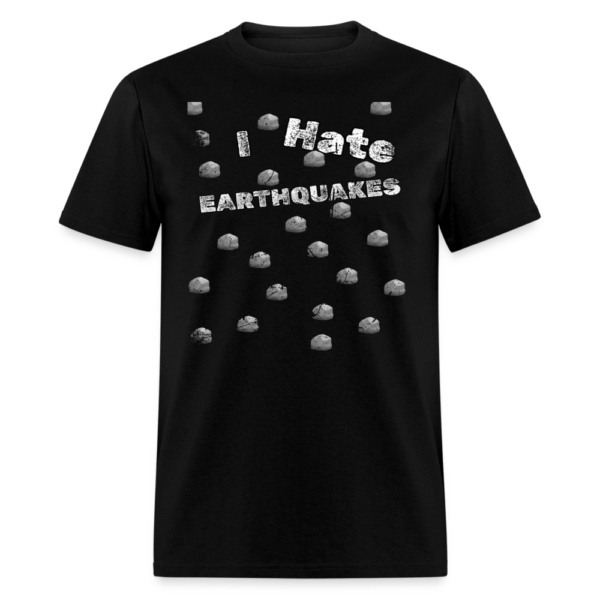Your cart is currently empty!
Michoacán Earthquake 2025: A Reminder of Nature’s Power on a Historic Day
·
Free shipping over $50 for the month of April using code aprilship
On January 12, 2025, a significant earthquake of magnitude 6.2 struck near Coalcomán in Michoacán, Mexico. This seismic event resonated across the region, coinciding with the 15th anniversary of the devastating Haiti earthquake, marking a poignant reminder of nature’s unpredictable power.
The Details of the Earthquake
The earthquake occurred at approximately 4:57 am EST, with its epicenter near Coalcomán, Michoacán. Initial reports indicated a depth ranging between 30 to 84 kilometers. This depth classification suggests the earthquake originated within the earth’s crust, a common characteristic of quakes in this region.
Residents in nearby cities such as Uruapan and Coalcomán reported feeling the tremors, which were strong enough to set off alarms and prompt temporary evacuations in some areas. CCTV footage circulating online vividly captured the moments of shaking, showing swaying structures and startled residents. Despite the intensity of the quake, no tsunami threat was issued, providing some relief to coastal communities.
Regional Seismic Activity: A Known Phenomenon
Michoacán is no stranger to seismic activity. Positioned along the Pacific Ring of Fire, this region frequently experiences earthquakes due to the interaction between the Cocos and North American tectonic plates. This geological dynamic makes preparedness a vital aspect of daily life for residents.
Experts have long highlighted the importance of building resilient infrastructure and fostering community awareness to mitigate the impact of earthquakes. The 6.2 magnitude event on January 12 serves as yet another example of why these measures remain crucial.
Comparisons to the Haiti Earthquake
The coincidence of this earthquake’s date with the 15th anniversary of the Haiti earthquake is deeply symbolic. On January 12, 2010, Haiti experienced a catastrophic 7.0 magnitude earthquake that claimed over 200,000 lives and left millions homeless. While the Michoacán earthquake caused far less devastation, it underscores the importance of continued investment in disaster preparedness and response capabilities globally.
Immediate Impact and Response
Early reports confirmed no significant damage or casualties resulting from the Michoacán earthquake. Local authorities, however, remain vigilant, assessing infrastructure for potential vulnerabilities. Residents are advised to stay alert for aftershocks, a common occurrence following earthquakes of this magnitude.
Emergency services quickly mobilized to evaluate the situation, ensuring that those affected received necessary support. Social media platforms have played a critical role in disseminating real-time information, offering both updates and reassurance to concerned citizens.
Lessons for the Future
This earthquake serves as a reminder of the ever-present risks posed by seismic activity, particularly in regions prone to tectonic movements. Governments and communities can draw several lessons from this event:
- Strengthening Infrastructure: Investing in earthquake-resistant buildings and retrofitting older structures can significantly reduce casualties and property damage.
- Enhancing Early Warning Systems: Advanced seismic monitoring and alert systems can provide precious seconds for residents to take cover.
- Community Preparedness: Regular earthquake drills and public education campaigns ensure that individuals know how to respond effectively during emergencies.
- Global Solidarity: Sharing knowledge and resources across borders can help nations better prepare for and recover from seismic disasters.
How the World Reacted
The global community responded to the news with a mix of concern and relief, given the lack of immediate reports of widespread devastation. Organizations like the United Nations and international disaster relief agencies remain on standby to provide assistance if needed. Meanwhile, scientists and seismologists have begun analyzing the data from this event to deepen their understanding of the region’s seismic behavior.
Social Media and Community Voices
In the age of digital connectivity, events like this earthquake unfold in real-time on platforms like Twitter, Facebook, and TikTok. Hashtags such as #MichoacanEarthquake and #January12Quake have trended, showcasing personal accounts, videos, and solidarity messages.
One resident of Coalcomán shared on Twitter, “The ground shook fiercely, but we are safe. Grateful for the quick response of local authorities.” Such firsthand accounts offer invaluable insights into the immediate effects of the quake and the resilience of affected communities.
Conclusion
The January 12, 2025, earthquake near Coalcomán, Michoacán, is a stark reminder of the region’s vulnerability to seismic events. Thankfully, early reports indicate minimal damage and no casualties, a testament to the importance of preparedness and resilience. As we reflect on this event and the Haiti earthquake’s 15th anniversary, it’s a call to action for continued vigilance and global cooperation in disaster preparedness.
We invite you to share your thoughts and experiences related to this earthquake. How can communities better prepare for seismic events? Join the conversation in the comments below.
Vintage I Hate Earthquakes Unisex Classic T-Shirt
Express your seismic discontent with the Vintage ‘I Hate Earthquakes’ Unisex Classic T-Shirt! Perfect for anyone who’s had enough of the ground shaking—wear it proudly and let the world know you’re just trying to stay steady!
-

Hungry and Humble Football Player Flapping Arms Touchdown Celebration Unisex Classic T-Shirt #philly
$19.99 Select options This product has multiple variants. The options may be chosen on the product page -

Africatown in Philly Phrase Unisex Classic T-Shirt
$13.99 Select options This product has multiple variants. The options may be chosen on the product page -

Vintage Funny Cat Selfie UFO Alien Invasion Unisex Classic T-Shirt
$13.99 Select options This product has multiple variants. The options may be chosen on the product page -

Vintage Philly Underdogs German Shepherds Unisex Classic T-Shirt
$9.99 Select options This product has multiple variants. The options may be chosen on the product page -

Voxel Art Style Test Day Kids’ T-Shirt
$14.99 Select options This product has multiple variants. The options may be chosen on the product page
————————————————
We use AI GPT Chatbots to help with our content and may get some things wrong.
————————————————-



 Why We Love PinkPantheress’s Unique Production Style: The Future of Music Vibes
Why We Love PinkPantheress’s Unique Production Style: The Future of Music Vibes Why Are Oceans Salty But Rivers Fresh? The Secret to Earth’s Survival
Why Are Oceans Salty But Rivers Fresh? The Secret to Earth’s Survival 





